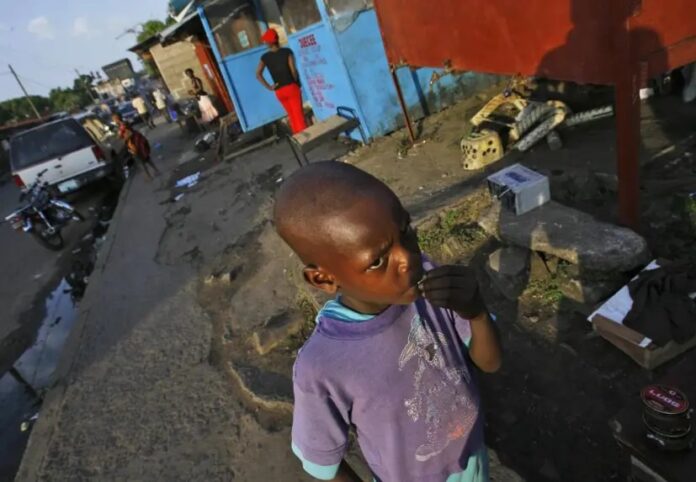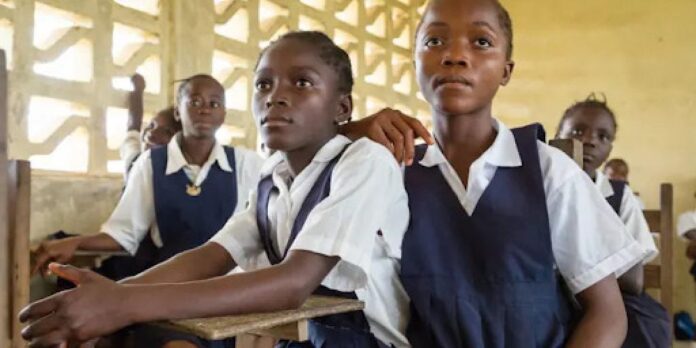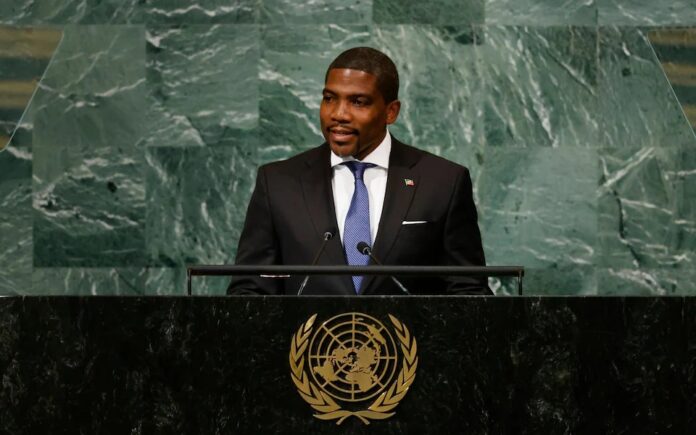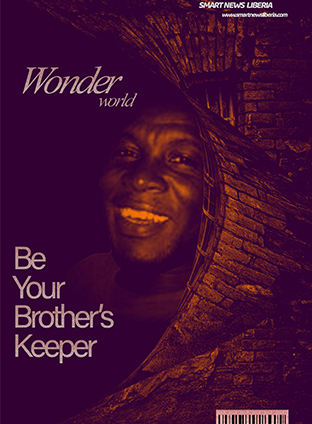YAOUNDÈ, CAMEROON – War might have ended in the West African nation of Liberia some 20 years ago, but Catholic observers say it’s become increasingly hard for survivors to reconcile with those who hurt them.
“Although we continue to enjoy relative peace, reconciliation remains one of the most pressing issues we try to grapple with since the end of our civil crisis,” said the Secretary General of the Catholic Bishops’ Conference of Liberia (CABICOL), Father Dennis Cephas Nimene.
“While efforts are being made, more efforts need to be made in order to ensure total healing and genuine reconciliation,” he told Crux.
His comments come in the wake of an International Workshop on “Dealing with the Past and Reconciliation – Learning in the Light of the Liberian Experience” that was organized by the Catholic Bishops’ Conference of Liberia, the Justice and Peace Commission of the Bishops’ Conference of Germany, and a German NGO called AGIAMONDO.
In an April 24 statement, representatives of the Catholic entities noted that violent conflict in “recent decades has left deep wounds in Liberian society.”
They said that marginalizing and ignoring those who survived the war could impede “the healing process.”
“We encourage the state [and] faith-based and civic leaders to acknowledge a collective responsibility to provide safe and meaningful opportunities for victims and survivors to tell their stories, to support each other, and to advocate for their needs regarding the healing process,” they said in the statement.
Participants in the International Workshop from the three Catholic organizations claim to have found “forgotten, abandoned, isolated, and even fearful” Liberian civil war survivors.
They said the victims’ fear is compounded where there is “a lack of public acknowledgement of the suffering that has occurred and the lives that have been lost.”
“We became more aware that survivors need to tell their stories,” Nimene told Crux.
“First of all, having a ‘listening ear’ to hear their stories is a sort of emotional and psychological relief. Survivors we met said that during the Truth and Reconciliation hearing at the end of the war, little or no space was given to them.”
“Rather, the perpetrators (actors of violence) were those given the time and space to come and narrate what they did and at times ‘justify’ their actions,” he said.
“Some survivors still carry bullet wounds. Telling their stories is not about digging up old wounds but calling their perpetrators to realize that what they did was wrong,” Nimene said.
He noted that “in the midst of apparent abandonment and neglect, it is very difficult for them to overcome the trauma. First of all, because no one is showing concern; no one accepts responsibility for the conditions that they are in today.”
Participants in the five-day workshop underscored the importance of not only listening to the stories of survivors, but also to those of the perpetrators of violence, because “those who have been responsible for acts of violence are also in need of healing.”
“It is important to create space to explore and understand these realities, while giving due priority to the suffering of victims and survivors and respecting the memory of those who have lost their lives,” representatives of the Catholic entities said.
They recognized the fact that it was difficult to listen to the stories of those who caused harm, but insisted that “they convey difficult but important messages about the complexity of violent conflict,” and “bring an important perspective on the cost of war.”
They praised those who worked for peace at the height of war, noting that they did so “at great personal risk and cost.”
“Many of these people played critical roles in holding communities together at times of fear and threat. Their leadership brought light to very dark places. They too have experienced trauma and loss and need to be supported to find healing,” they said.
They emphasized how important it is “to honor the memory” of those who lost their lives during the civil war.
“One concrete contribution we can make is to honor the memory of all those who lost their lives in the places where acts of violence occurred. In this way we bear witness to the dignity and worth of every human person.”
The West African nation descended into political chaos twice, first from 1989 to 1997 and then again from 1999 to 2003.
The first war involved an invasion of Liberia by the rebel National Patriotic Front of Liberia (NPFL) group, led by Charles Taylor, who attacked the country from Ivory Coast. He overthrew the rather corrupt and authoritarian government of Samuel Doe but failed to secure national adhesion, and several rebel movements cropped up and fought each other, until a peace deal was brokered in August 1996.
Taylor was elected President of Liberia in a 1997 general election, but the war led to the deaths of over 200,000 people.
He ruled peacefully for two years, but a rebel movement called Liberians United for Reconciliation and Democracy, backed by Guinea, attacked the country from the north, triggering the second Liberian Civil War. Another anti-Taylor group, The Movement for Democracy in Liberia, later attacked the country from the South.
Taylor resigned and fled to Nigeria in August 2003. What was known as the Accra Comprehensive Peace Agreement was signed by the warring parties, marking the end of the second Liberian war that killed over 50,000 people and forced thousands of people from their homes.
Twenty years after, Nimene told Crux that Liberian society is still struggling with the issue of reconciliation.
“At the end of her twelve years’ tenure, the former president of Liberia Madam Ellen Johnson Sirleaf publicly confessed that she ‘failed’ in the area of reconciliation,” he said.
“The Church and other faith-based institutions are glossing over the issue of reconciliation. They (Faith based institutions) should be at the vanguard of such endeavors. However, the lack of needed expertise, resources, will power, and so on, have been a hindrance.”
“In conclusion, the state of Liberia is still in need of healing and reconciliation,” Nimene said. Source: cruxnow.com







